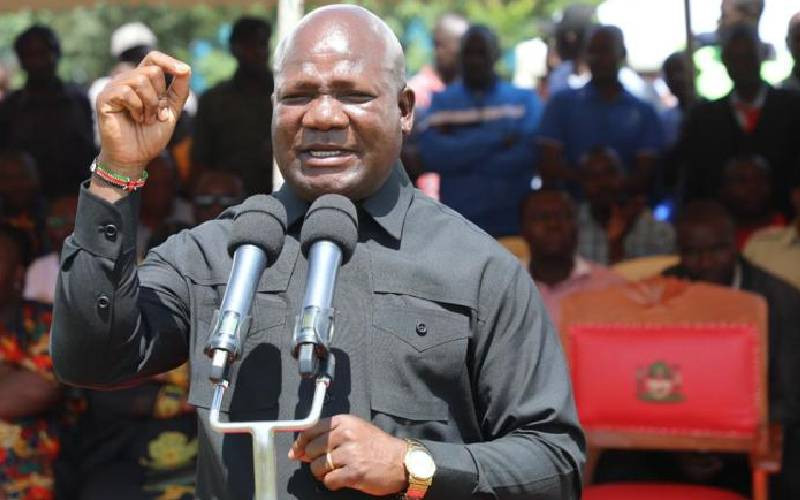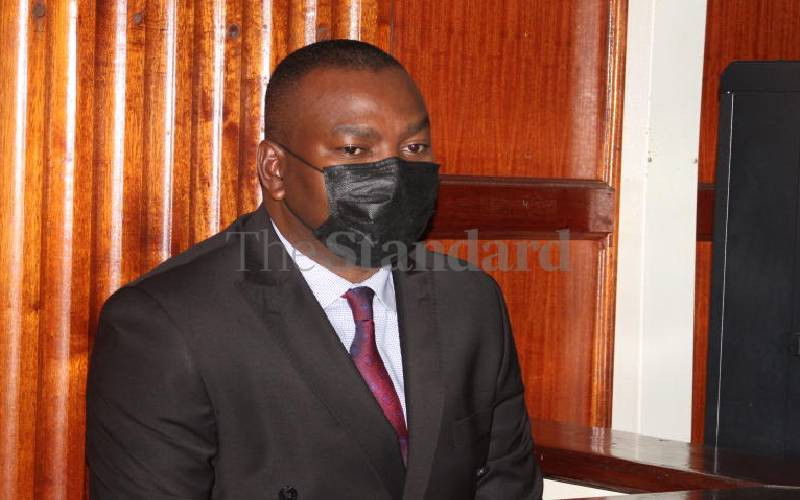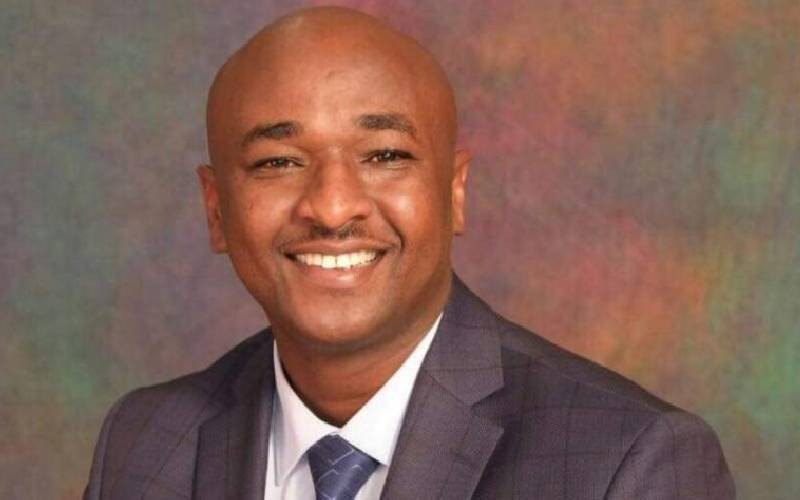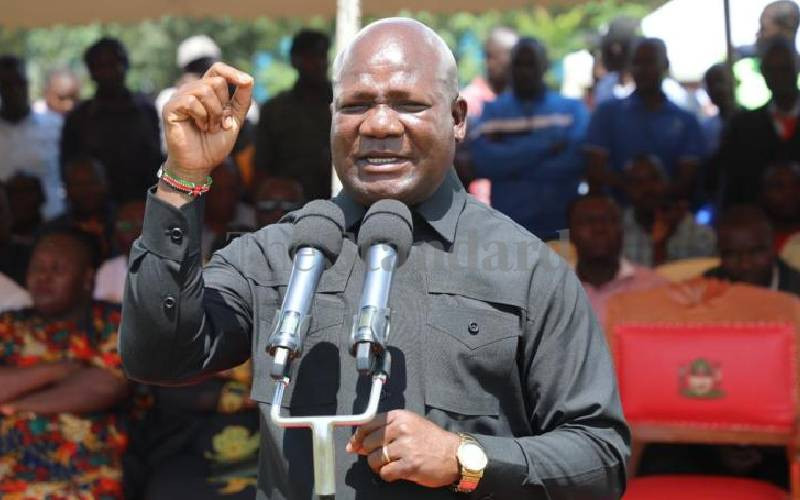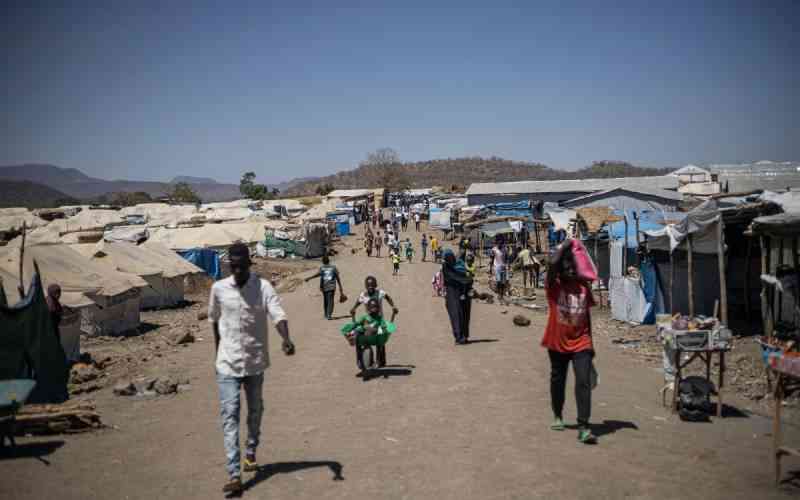By FELIX OLICK
[email protected]
Experts in international law insist Kenya has no choice but to surrender the journalist wanted by the International Criminal Court (ICC).
On October 2, an ICC judge issued an arrest warrant against Mr Walter Barasa, who is accused of bribing and attempting to corruptly influence witnesses in the case against Deputy President William Ruto.
Following repeated allegations by ICC prosecutors that the Government is not co-operating with its investigations in the country, the Office of the Prosecutor called on the Government to immediately arrest Barasa and hand him over.
“Sending this warrant to Kenya now is an opportunity for the Kenyan government to demonstrate the co-operation that they say they have been giving to the ICC,” the Prosecutor Fatou Bensouda said on Wednesday. “This is an opportune moment to arrest Barasa and surrender him to the court.”
Mr Ruto, who is charged together with former journalist, Mr Joshua arap Sang, is currently on trial at the ICC for orchestrating attacks in the Rift Valley in the aftermath of the disputed 2007 presidential election polls
The arrest warrant against Barasa was issued confidentially on August 2. Prior to making the warrant public, the ICC tried unsuccessfully to have Barasa arrested in an unspecified third country thought to be Uganda.
Shortly after being informed of the ICC warrant on October 2, Attorney General Githu Muigai issued a statement that the Kenyan Judiciary would rule on whether Barasa should be arrested.
“These procedures require the minister in charge of the Interior, upon receipt of the formal warrant of arrest, to present the said warrant to the Judiciary for enforcement,” Prof Muigai said in a statement.
Right to be heard
“During the judicial consideration of the legality of the warrant, the subject is entitled to make representations to the court. The final determination on the enforceability of the warrant is therefore a judicial one.”
Legal experts responded by pointing out that the Kenya is legally obliged to arrest Barasa and hand him over to the ICC.
Alex Whiting, a professor of international law at Harvard University in the United States, said the Kenyan Judiciary had a “very limited role” to play.
“Their main function is to ensure that the person who is arrested is in fact the person sought in the arrest warrant,” Whiting said via e-mail. “They are also permitted to consider the issue of detention, but other than that, there is no other issue to consider.
Stay informed. Subscribe to our newsletter
“If the Attorney General is suggesting that it goes beyond that, and the suspect has a right to be heard on other matters with respect to the charges or evidence or his responsibility, that is just not right.”
Whiting said that under Kenya’s legal obligations as a member of the ICC, the Judiciary has no say on the legality or merits of this arrest warrant.
“They are simply obliged to surrender the person to the ICC,” he said. “The Judiciary has no discretion or judgement about whether the charges should be brought, about the evidence in the case, or anything like that.”
But head of East Africa Law Society James Aggrey Mwamu disagrees.
He says that the Kenyan Judiciary has powers to decline to enforce the arrest warrant but must give proper reasons for failing to do so.
“Once the Government has received the warrants from the ICC, The AG or the Director of Public Prosecution if they are satisfied that the documents sent lay a proper basis for such warrants shall place those warrants before the judge of the High Court who shall issue orders in accordance with section 30 of the Act (International Crimes Act),” he told The Standard on Sunday.
“The judge shall give reasons for refusal to allow the warrants or reasons for allowing the same. The Judge must be satisfied that the warrants are genuine and they are for a merited purpose,”
But Mwamu warns that if Kenya refuses to follow the due process and enforce the warrant, it could be the beginning of a showdown between Kenya and the ICC.
“If Kenya refuses to follow due process and allow the warrants, it can be interpreted as non-co-operation and it could be a sign to the ICC that Kenya does not intend to co-operate in which case it must be psychologically prepared to deal with a recalcitrant state,” Mwamu observed.
 The Standard Group Plc is a
multi-media organization with investments in media platforms spanning newspaper
print operations, television, radio broadcasting, digital and online services. The
Standard Group is recognized as a leading multi-media house in Kenya with a key
influence in matters of national and international interest.
The Standard Group Plc is a
multi-media organization with investments in media platforms spanning newspaper
print operations, television, radio broadcasting, digital and online services. The
Standard Group is recognized as a leading multi-media house in Kenya with a key
influence in matters of national and international interest.
 The Standard Group Plc is a
multi-media organization with investments in media platforms spanning newspaper
print operations, television, radio broadcasting, digital and online services. The
Standard Group is recognized as a leading multi-media house in Kenya with a key
influence in matters of national and international interest.
The Standard Group Plc is a
multi-media organization with investments in media platforms spanning newspaper
print operations, television, radio broadcasting, digital and online services. The
Standard Group is recognized as a leading multi-media house in Kenya with a key
influence in matters of national and international interest.

